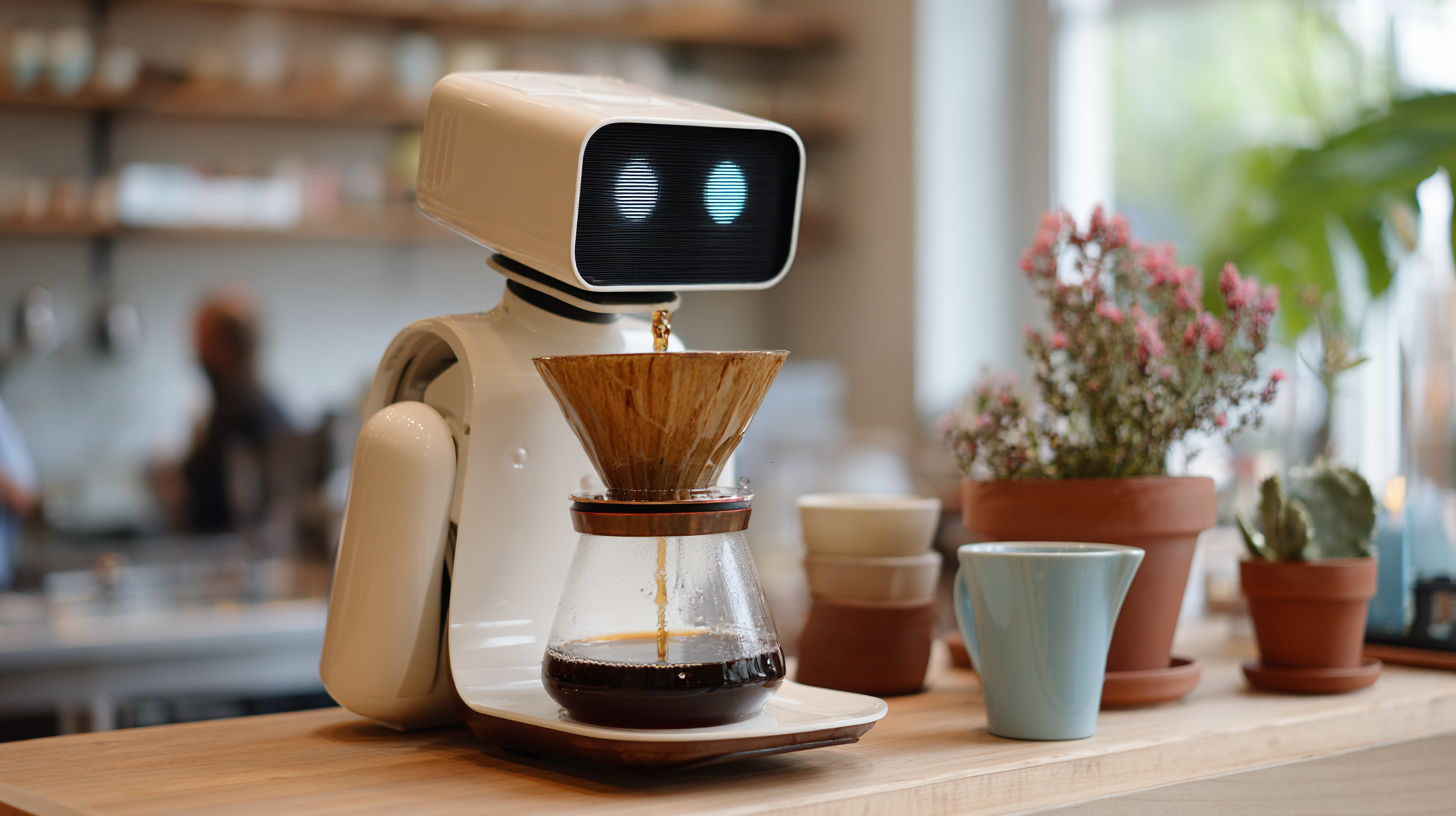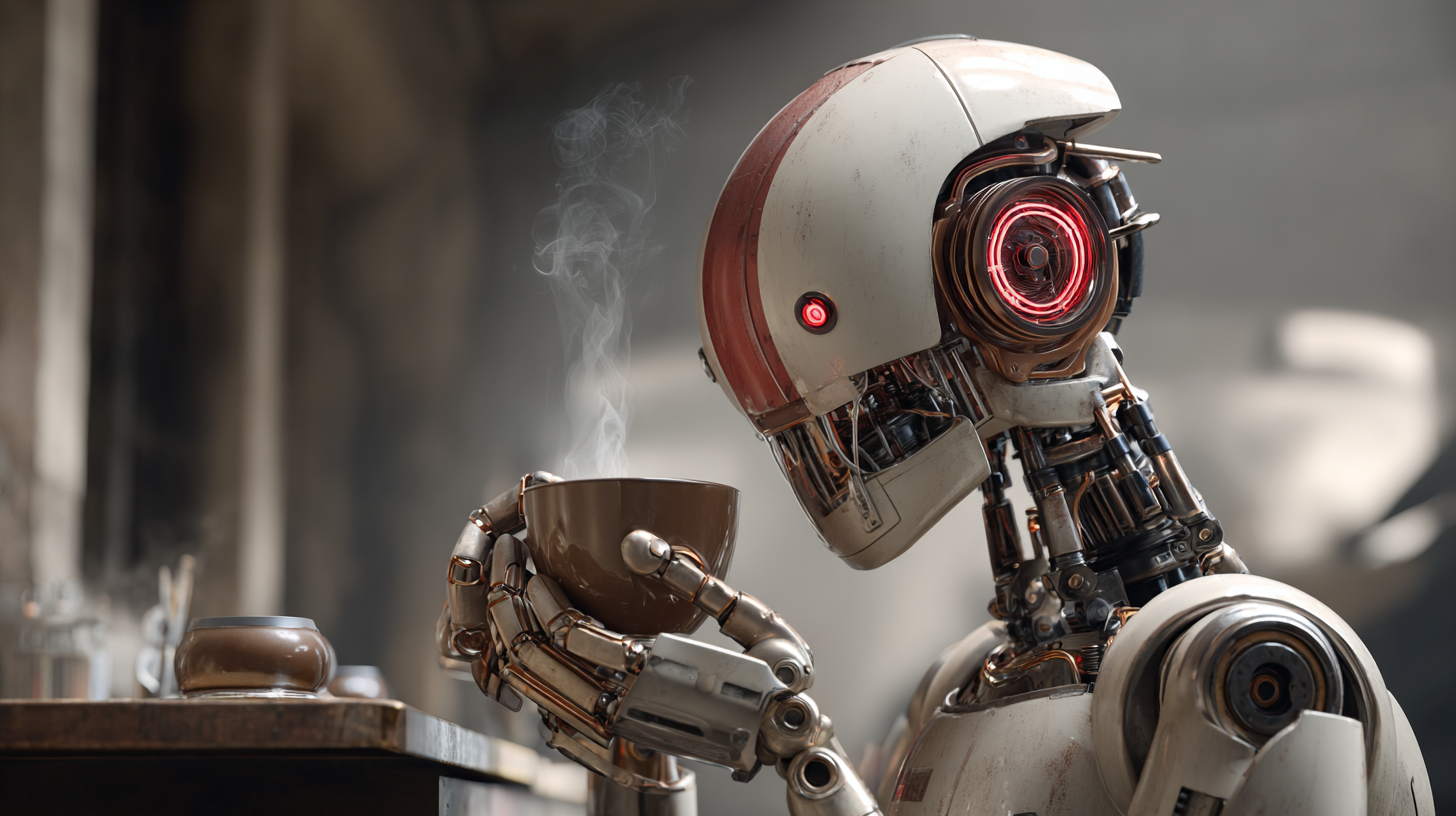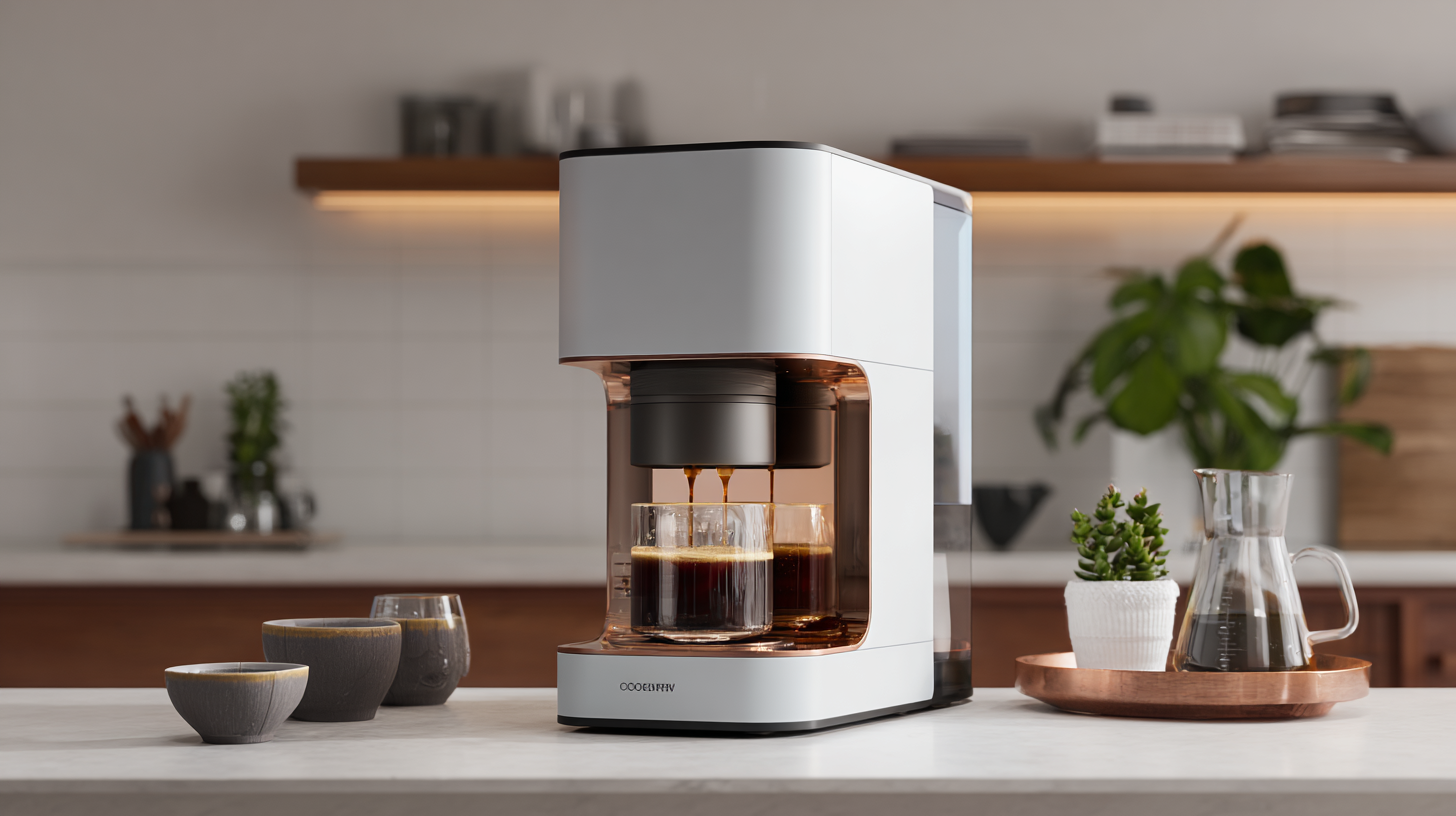The art of brewing coffee has undergone a remarkable transformation with the advent of technology, notably through the introduction of the Coffee Robot. As specialty coffee continues to gain popularity—with data from the Specialty Coffee Association indicating an annual market growth rate of 5%—the demand for high-quality brewing methods has surged. Coffee Robots, equipped with advanced brewing techniques and precision control, are changing the way enthusiasts and professionals alike create their morning brews.
These innovative machines utilize algorithms to optimize brewing parameters such as temperature and extraction time, ensuring consistency and enhancing flavor profiles. According to a report from MarketsandMarkets, the coffee machine market is expected to reach $30.8 billion by 2026, driven in part by advancements in automation and robotics. This surge highlights not only consumer interest but also the growing significance of Coffee Robots in delivering barista-level quality with convenience at home or in cafes. As we delve deeper, we will explore the science behind these remarkable machines and the brewing techniques that are revolutionizing the coffee experience.

In recent years, the rise of coffee robots has transformed the way we brew our morning cup of joe. These innovative machines employ advanced brewing techniques that not only enhance flavor but also personalize the coffee experience to suit individual preferences. Utilizing precision sensors and artificial intelligence, coffee robots can monitor variables such as water temperature, brewing time, and coffee grind size, ensuring a consistent and optimal extraction for each brew. This level of control is challenging to achieve using traditional methods but is crucial for coffee aficionados seeking the perfect cup.
Moreover, the introduction of robotics in coffee brewing allows for greater experimentation with flavors and brewing methods. For instance, some machines can create unique infusions by adjusting brewing parameters or even incorporating elements like temperature and pressure in creative ways. This innovation opens doors to new taste profiles and styles, transforming the coffee ritual into an artistic experience. Whether it's a delicate pour-over or an espresso shot crafted to perfection, coffee robots not only simplify the brewing process but also enhance the enjoyment of your morning coffee, making each sip an artful delight.

The evolving landscape of coffee brewing is increasingly shaped by advanced algorithms and sophisticated sensors. Recent innovations, like the electronic nose developed in Taiwan, demonstrate how technology can elevate our understanding of coffee's sensory profile. This device can identify different coffee aromas with remarkable accuracy, underscoring the significance of volatile compounds in defining quality. Using digital technologies to assess the impact of spontaneous fermentation on coffee has also shed light on how various brewing techniques can enhance flavor and aroma, creating a more nuanced brewing experience.
A new wave of coffee robots incorporates these technological insights into their designs, leveraging artificial intelligence algorithms to optimize roasting and brewing processes. By analyzing data from sensors throughout the brewing cycle, these machines can adapt to various coffee beans and user preferences, ensuring a consistently excellent cup. This intersection of AI and coffee preparation not only streamlines the brewing process but also allows for the customization of flavors, appealing to individual tastes in unprecedented ways. As coffee enthusiasts embrace these innovations, the future of morning brews promises to be as scientific as it is satisfying.
The rise of coffee robots has brought a new level of customization and precision to the morning brew experience. These advanced machines leverage cutting-edge technology to fine-tune every aspect of the brewing process, from water temperature to brew time, ensuring that each cup is crafted to meet individual taste preferences. With the ability to save user profiles, coffee enthusiasts can experiment with various coffee beans, grind sizes, and brewing methods, allowing them to enjoy a consistently tailored beverage that matches their unique palate.
Moreover, the integration of artificial intelligence in coffee robots expands the realm of personalization even further. By analyzing user feedback and brewing patterns, these intelligent machines can suggest adjustments that elevate the coffee experience. This not only enhances flavor profiles but also introduces users to new tastes and brewing methods they may not have considered. As coffee lovers seek a deeper connection with their daily brew, the precision and customization offered by coffee robots are revolutionizing the way we think about our morning rituals.
The integration of robotics in coffee brewing is not just a technological advancement but also a step toward sustainability. Robotic coffee machines can be programmed to optimize energy usage, reducing wastage associated with traditional brewing methods. By utilizing precision heating and automated brewing cycles, these machines minimize the amount of coffee and water consumed, ensuring that every drop is utilized efficiently. This careful calibration not only enhances the flavor profile but also supports eco-friendly practices that contribute to a more sustainable coffee culture.
Moreover, many robotic coffee brewers are designed with recyclable materials and energy-efficient systems. Some models incorporate renewable energy sources, such as solar power, to further diminish their environmental footprint. With features like automated cleaning cycles that use minimal water and energy, these machines promote a greener approach to coffee preparation. By choosing robotic brewers that adhere to eco-friendly practices, consumers not only enjoy a superior cup of coffee but also make a responsible choice that supports the planet’s health.

As coffee culture continues to evolve, the next generation of coffee robots is set to transform the way we experience our morning brew. Recent advancements in artificial intelligence, showcased at events like WAIC 2024, highlight the potential of sophisticated algorithms and machine learning in automating the brewing process. These innovations allow for precise control over brewing parameters, such as temperature, grind size, and extraction time, resulting in a consistent and personalized cup of coffee tailored to individual preferences.
Moreover, the integration of coffee robots into daily routines reflects a broader trend of technology enhancing traditional practices. As these machines become more prevalent in homes and cafes, they not only streamline the brewing process but also foster a new appreciation for craftsmanship in coffee-making. This shift is likely to influence coffee culture significantly, encouraging consumers to engage more deeply with their beverage choices, while simultaneously embracing the convenience that modern technology offers. As we look to the future, it is clear that coffee robots will play a crucial role in shaping both our consumption habits and the very essence of coffee culture itself.